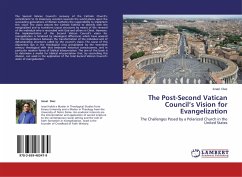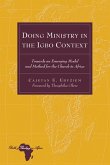The Second Vatican Council s recovery of the Catholic Church s commitment to its missionary vocation towards the world places upon the succeeding generations of Roman Catholics the responsibility to implement this vision. The vision exhorts the Catholic faithful to identify with the marginalized and to transform unjust structures by means of the renewal of the individual who is reconciled with God and others in Christ. However, the implementation of the Second Vatican Council s vision for evangelization is hindered by ideological differences which have severed the interdependence between the transformation of the individual and of dehumanizing structures called by the council s vision. The cause of this disjunction lays in the theological crisis precipitated by the twentieth century theological shift that embraced historical consciousness, and in particular modern forms of biblical interpretation. The aim of this book is to determine a model for biblical interpretation that, by reconciling this division, can assist in the application of the total Second Vatican Council s vision of evangelization.
Bitte wählen Sie Ihr Anliegen aus.
Rechnungen
Retourenschein anfordern
Bestellstatus
Storno








